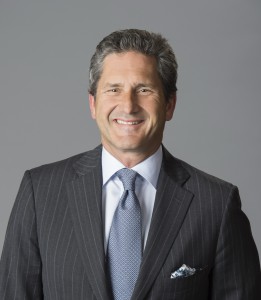
After more than 40 years of operation, DTVE is closing its doors and our website will no longer be updated daily. Thank you for all of your support.
Liberty Global’s Fries looking to Belgian merger, fixed-mobile convergence

Liberty Global CEO, Mike Fries
Liberty Global is hoping part-owned Belgian operator Telenet will take advantage of the renewed sale of Wallonia-region cable operator Voo to create a national-scale player in the country, according to CEO Mike Fries.
Speaking at the Morgan Stanley European Technology, Media and Telecom conference online last week, Fries said that the acquisition of Voo by Telenet “would be a home run” that would deliver great synergies.
“The transaction could come as early as the first quarter,” he said, and Telenet was “uniquely positioned” to take advantage.
If that didn’t happen, there could be other ways to get into the market, he said, but the acquisition of Voo would be the first choice.
Telenet, which operates only in the Flanders region and Brussels, has been interested in acquiring Voo for some time.
The sale by Nethys of a majority stake in the latter to private equity outfit Providence Equity was suspended last year by the Liège commercial tribunal due to transparency concerns after Orange, which had been a candidate to acquire it, took legal action.
This year, Nethys let it be known that it would not appeal that ruling but would look to restart the sale of the operator.
Speaking at the Morgan Stanley event, Fries said that fixed-mobile convergence increasingly drives scale and synergies in Europe. “We are driving to FMC in all of our markets,” he said, citing Virgin Media’s planned joint venture with Telefónica O2 as the prime example. He said that deal was the only logical move for Virgin Media.
“There were no buyers at the price we would accept and there were no sellers,” he said of the UK market.
Fries said that it was important to get the underlying business “back to long term growth”.
Fries said that Liberty had been more cautious about the level of synergies that could be delivered in the UK. He said that the convergence strategy drove customer satisfaction up.
While the Netherlands and Switzerland are different from the UK, for example in having three operators as opposed to four, the logic is the same, he said.
Fries said there is “huge support” from regulators for FMC, which drove investment in infrastructure competition and stabilised the markets with “more rational competition”. He said the view of regulators about how many mobile operators there needs to be is changing to some extent.
Fries said that Virgin Media would extend its 1Gbps offer to its entire footprint, or half the country, next year. He said broadband remained “a two-horse race between us and BT” despite the presence of smaller scale fibre outfits.
“I think we’re going to maintain our leadership position there,” he said.
Project Lightning, Virgin’s fibre build out to greenfield areas, now extended to “about two and a half million homes”, he said. “It’s a growth engine with high return on capital,” he said.
In relation to Switzerland, he said that the Sunrise/UPC merger made sense and, alluding to Liberty’s switch from potential seller to buyer, that “the outcome [of a merger] was more important than the process”. Synergies are 45% of the total enterprise value, he added.
The deal gave the combined company 90% reach across the country, he said.
Fries said that the combination would deliver free cash flow, which was increasingly the metric that the company is focused on.
Fries said that a merger of this type would help make the market “more rational”.
Andre Krause of Sunrise was recently appointed CEO of the combined business, with Liberty veteran Severina Pascu returning to Switzerland as deputy CEO.
Fries said that “the most important thing we can do is stabilise the core businesses” and generate future growth, even if the ownership structure of assets becomes more complicated. While Sunrise was being delisted in Switzerland, the company remains open to a potential re-listing or other structure that makes sense at a future date, he said.
Elsewhere, said Fries, Liberty’s JV with Vodafone in the Netherlands had turned the fortunes of two companies that “had been struggling a little bit” and had put KPN on the back foot.
Fries said that the prospects for VodafoneZiggo in the Netherlands “look good”.
“We’d love to own more of it…Let’s see,” he said. “It’s a model that we will be replicating in every market that we can.”


